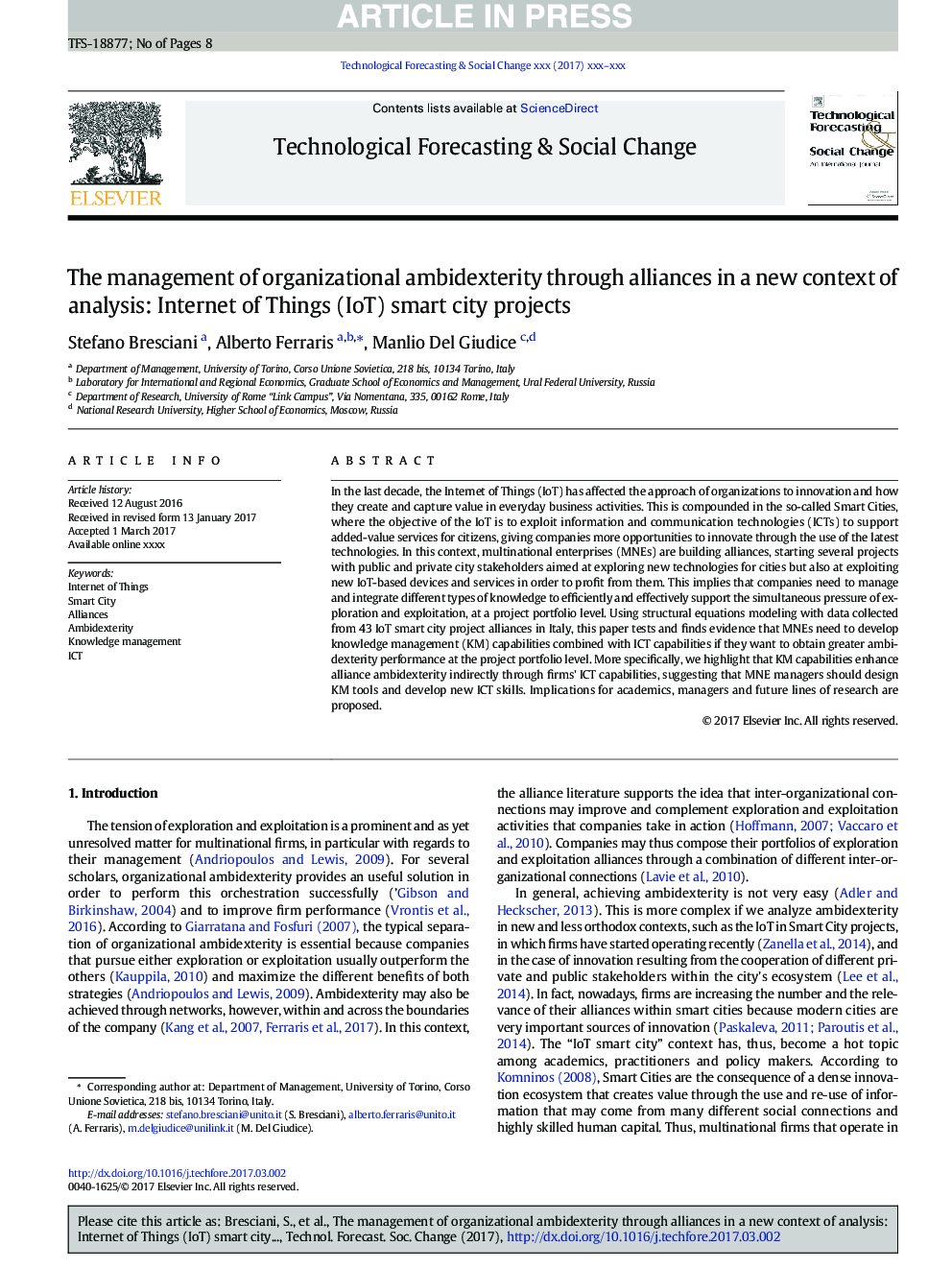| Article ID | Journal | Published Year | Pages | File Type |
|---|---|---|---|---|
| 13404510 | Technological Forecasting and Social Change | 2018 | 8 Pages |
Abstract
In the last decade, the Internet of Things (IoT) has affected the approach of organizations to innovation and how they create and capture value in everyday business activities. This is compounded in the so-called Smart Cities, where the objective of the IoT is to exploit information and communication technologies (ICTs) to support added-value services for citizens, giving companies more opportunities to innovate through the use of the latest technologies. In this context, multinational enterprises (MNEs) are building alliances, starting several projects with public and private city stakeholders aimed at exploring new technologies for cities but also at exploiting new IoT-based devices and services in order to profit from them. This implies that companies need to manage and integrate different types of knowledge to efficiently and effectively support the simultaneous pressure of exploration and exploitation, at a project portfolio level. Using structural equations modeling with data collected from 43 IoT smart city project alliances in Italy, this paper tests and finds evidence that MNEs need to develop knowledge management (KM) capabilities combined with ICT capabilities if they want to obtain greater ambidexterity performance at the project portfolio level. More specifically, we highlight that KM capabilities enhance alliance ambidexterity indirectly through firms' ICT capabilities, suggesting that MNE managers should design KM tools and develop new ICT skills. Implications for academics, managers and future lines of research are proposed.
Related Topics
Social Sciences and Humanities
Business, Management and Accounting
Business and International Management
Authors
Stefano Bresciani, Alberto Ferraris, Manlio Del Giudice,
